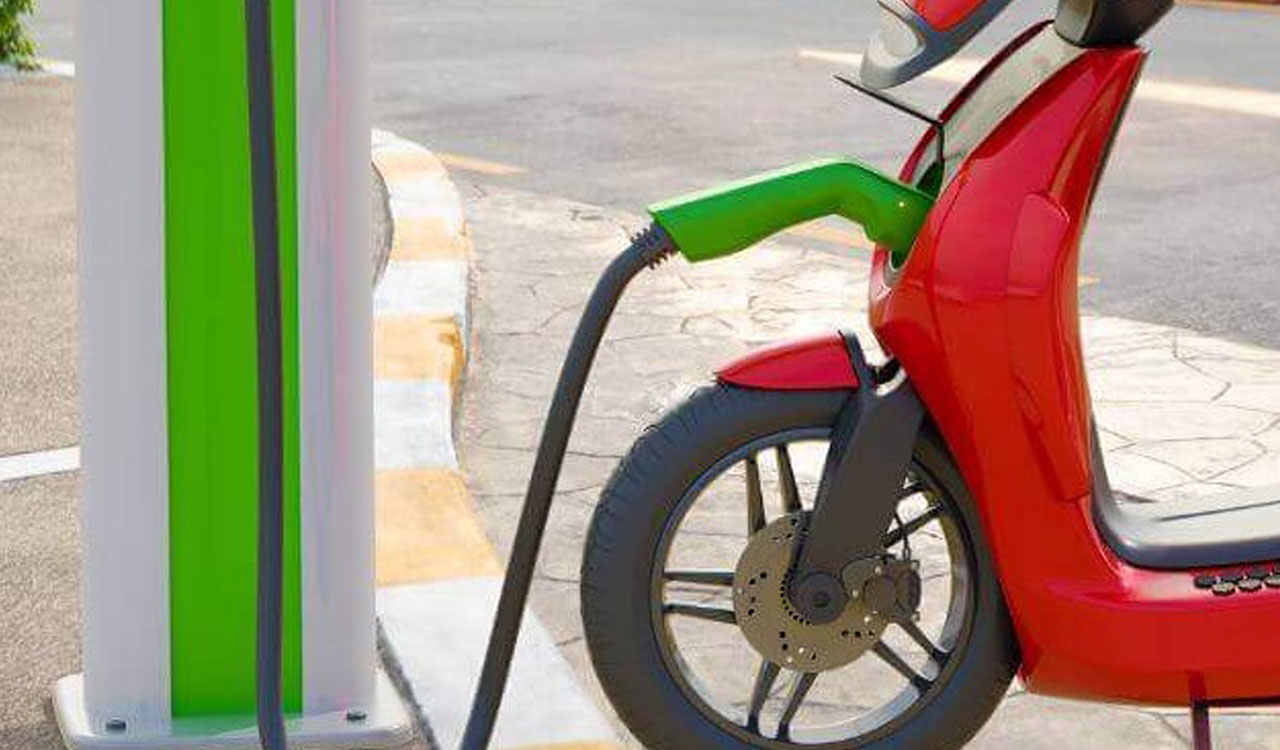What do you like most? The thrum and roar of a fuel car engine or the quiet of an electric vehicle?
Electric vehicles make progress in the global car market, increasing their share from roughly 4% in 2020 to 14% in 2022. Nevertheless, internal combustion engine (ICE) cars maintain their dominance in global vehicle sales.

Anglia: Electric vehicle (EV) sales have been growing at a rapid pace.
Their share of the global car market has risen from around 4 per cent in 2020 to 14 per cent in 2022. However, this means internal combustion engine (ICE) cars still dominate global vehicle sales.
Also Read
The fear of running out of battery power while on the road (known as “range anxiety”) is one reason why people are hesitant to adopt EVs. But research raises another interesting question: could the appeal of car sounds be a factor influencing drivers to choose environmentally harmful cars? Unless an ICE is switched off, it will always produce some noise as a byproduct of converting fuel into motion. Electric motors also make some noise, but one of the first things you notice when getting behind the wheel is that their dull whine is significantly quieter than the roar of an engine.
While EVs are associated with far fewer greenhouse gas emissions than their ICE counterparts, the sound they make lacks the emotive pull that draws people towards traditional ICE vehicles.
Nowhere can this be seen more clearly than in motorsports. During overrun – when droplets of fuel escape onto hot exhaust pipes – these vehicles produce a loud series of pops and cracks that ignite the passion of fans.
Emotional response and car culture
By examining research in this field, we can break down the reasons behind the emotive influence engines hold over people. For many people the sound of a car’s engine elicits a thrilling and exciting emotional response. It can also trigger a deep sense of nostalgia.
The authors of the 2002 book “Autopia, Cars and Culture”, Peter Wollen and Joe Kerr, note that car sounds seem to “evoke ancient associations with primeval creatures, be they mythical monsters or beastly animals, beings of and by which we are in equal measures terrified and fascinated”.
The appeal of loud car exhaust noise can also be influenced by cultural factors, reflecting the significance of cars and car culture in many societies.
Japan, for example, has a widely celebrated street-racing culture. Initial D, a classic Japanese manga cartoon which became a popular animated story, described street racing taking place at night in the mountainous Gunma prefecture of central Japan.
The story influenced a subculture within Japan of people taking part in illegal nighttime races along winding mountain passes.
Acoustic characteristics
The specific acoustic characteristics of a car’s exhaust noise also play a role in its appeal. Research from 2006 found that certain frequencies and harmonics are more pleasing to the ear than others.
Often it is these preferred characteristics that are present in the exhaust notes of sporty cars. In fact, many modern ICE cars have exhaust notes tuned, sometimes even artificially, to sound more pleasing.
Separate research has explored the impact of engine sounds on our brains. The results of this study indicated that the particular characteristics of engine sounds have a significant effect on neuronal activity in the auditory cortex – the part of the brain responsible for processing sound.
When exposed to a preferred engine sound, neuronal activity lasted longer, suggesting that people’s auditory and neurological responses to car engine sounds can shape their subjective preferences for those sounds.
What about quieter EVs?
The powerful roar of a petrol engine stirs our emotions, is firmly embedded in car culture and perhaps even stimulates our brains. But EVs hold their own unique appeal, albeit in a more subdued manner.
Research suggests that the quiet sound of EVs is calmer for drivers. In 2018, psychoacoustician Duncan Williams monitored the brain activity of four London taxi drivers as they drove both electric and diesel black cabs.
Those driving EVs were found to be more focused, calmer and happier than those driving cars with a diesel engine.
Another study, which surveyed EV drivers’ driving behaviour in the US, arrived at a similar conclusion. It found that EV drivers tend to adopt a calmer driving style, with smoother acceleration and braking. Even the routes they took differed compared to ICE drivers in the same study.
This more relaxed driving style may, at least in part, be motivated by the desire of EV drivers to maximise the environmental benefits of their vehicle. But the implications of calm driving like this extend beyond personal comfort and protecting the planet.
It can potentially lead to less road rage, fewer accidents and generally better wellbeing. These advantages are especially significant considering car accidents kill or seriously injure one person in the UK every 16 minutes.
Yet, for those that love the sound of a noisy car engine, all is not lost. Some car manufacturers, such as BMW and Porsche, have experimented with acoustic synthesisers in EVs to make them sound more like petrol engines.
Nevertheless, to lower dangerous greenhouse gas emissions and create safer roads, quieter EVs emerge as the better choice for everyone’s sake.
Related News
-
21 dead as Mozambique erupts in violence after election court ruling
3 mins ago -
Cartoon Today on December 25, 2024
8 hours ago -
Sandhya Theatre stampede case: Allu Arjun questioned for 3 hours by Chikkadpallly police
8 hours ago -
Telangana: TRSMA pitches for 15% school fee hike and Right to Fee Collection Act
8 hours ago -
Former Home Secretary Ajay Kumar Bhalla appointed Manipur Governor, Kerala Governor shifted to Bihar
8 hours ago -
Hyderabad: Organs of 74-year-old man donated as part of Jeevandan
8 hours ago -
Opinion: The China factor in India-Nepal relations
9 hours ago -
Editorial: Modi’s Kuwait outreach
9 hours ago




